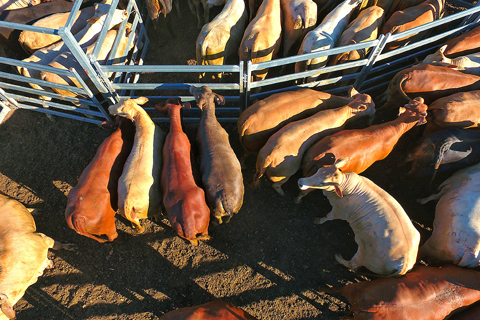Family Law and Farming Cases

When a husband and wife separate, it is always a difficult time. Complexity can be added when the primary asset of the relationship is a family farm. The added difficulty of separation where farms are involved (or farming families) is not only splitting the assets of a husband or wife or de facto partners but often, also splitting with one spouse’s family.
Why do farms add complexity to family law matters?
In many circumstances, farms are intergenerational. They are inherited and passed down from one generation to the next. Farmers traditionally work hard, and the legacy is passed down to their children (and then grandchildren).
This often means that the value of the farm is not just assessed on its commercial value, but it is also linked emotionally, through the generations of the family.
The difficulty arises in meeting the non-farmer spouse’s entitlement to financial relief in family law cases when much of the capital of the relationship exists in the land, plant and equipment and livestock. Further, the structures of the land (and the farm) are often family trust structures, which are used as tax minimisation vehicles and reflect generational wealth.
It can be a significant exercise to review these structures, and at times, many are surprised that the non-farmer spouse may have an interest in a trust where the family may have hoped to have had them excluded.
Farm property settlement treated no differently by the Family Law Court
Since 1985, the Family Court has said that there are no separate rules relating to farms or farming matters.
For any property matter (farm or no farm), the Court will broadly look at a four-step process:
- Identify the assets, liabilities, and financial resources of the relationship.
- Identify the financial and non-financial contributions of the parties, including initial contributions, contributions made during the relationship and contributions post-separation.
- Assess a range of additional factors (called “future needs” factors) under section 75(2) of the Family Law Act These factors consider the needs of both parties, now and in the future. They include matters such as health, age and who has primary care of the children.
- Consider whether the proposed division is just and equitable in the circumstances.
For a more detailed look at property settlement, you can visit our blog “How does the court determine property settlement matters?”
What is unique when assessing farm-related property settlement?
In farming matters, there are characteristics that are particular to their cases that are frequently mentioned in judgments:
- Dealing with the initial contribution – for example, did the farm exist at the time the parties commenced cohabitation? If so, what was the approximate value of the farm at this stage? What role did the farmer play in the structure at this stage?
- What are the significant needs at the end of the marriage? Did the non-farmer spouse spend a significant period of time on the farm, which has begrudged them the opportunity to earn an income away from the farm?
- In comparison to the rest of the property pool, what is the portion of the pool that is made up of the farm – including livestock, land and plant and equipment?
- Is there a possibility to pay the non-farmer spouse their entitlement without forcing the sale of the farm? It is the preference of the Court to keep the farmer earning an income rather than fire sale the asset that they derive their income from.
Expert legal and financial advice for farming matters is crucial
It is important for any separation that involves farming structures, an experienced solicitor is engaged prior to any agreement on the value of the farm (and the moving parts).
It may be necessary to engage multiple different valuers to value:
- the livestock or crops;
- the plant and equipment – including machinery, vehicles or aircraft; and
- the land.
To do this can be a difficult task involving many professionals. It is important that the right documents are provided to these professionals and that there is transparency through the process to ensure an independent value is reached. Simply reviewing the balance sheet, profit and loss statements, and other financial statements of the various structures is not enough to ascertain a true value. In fact, full disclosure of everything during your family law matter must be adhered to.
What happens once a valuation has been determined?
Once a value is determined, it is important to consider the future needs of the non-farmer spouse (and the financial resource kept by the farmer). This is a discretionary exercise, and again, it is important an experienced solicitor is used to assist in persuading this case.
There are many variable factors, including market forces, age of the farmer and non-farmer, state of livestock or crops, ability to sell off parts of the land and ensuring income is still maintained.
A just and equitable settlement is the primary focus
Whilst the Court will always prioritise preserving the family farm, it will not do so if it is not a just and equitable settlement to both spouses.
If you are a farmer or non-farmer spouse facing separation, at Meillon & Bright we have experience in negotiating for both the farmer or non-farmer.
Contacting Meillon & Bright
Family Lawyers Perth & Sydney
The information contained in this article is of general nature and should not be construed as legal advice. If you require further information, advice or assistance for your specific circumstances, please contact Meillon & Bright Family Lawyers.

